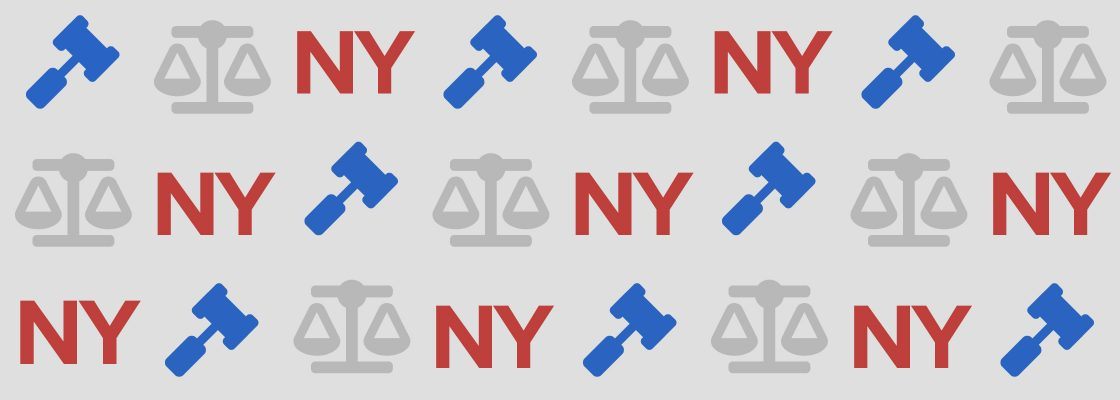New York State does not allow the use of testimonials in healthcare advertising, a restriction we are constantly keeping in mind when marketing medical services for our Empire State clients. We also encourage our clients to follow 27(c)(i) closely, making sure to retain any old versions of their site for the required period. To understand how all of New York’s relevant medical marketing laws apply to you, talk with your legal counsel.
More Information
Oversight Body:
New York State Board for Medicine
Reference Citation:
McKinney’s Education Law § 6530(27)
Selected Excerpt:
Definitions of professional misconduct.
Each of the following is professional misconduct, and any licensee found guilty of such misconduct under the procedures prescribed in section two hundred thirty of the public health law shall be subject to penalties as prescribed in section two hundred thirty-a of the public health law except that the charges may be dismissed in the interest of justice: (…)
Advertising or soliciting for patronage that is not in the public interest.
- a. Advertising or soliciting not in the public interest shall include, but not be limited to, advertising or soliciting that:
- i. is false, fraudulent, deceptive, misleading, sensational, or flamboyant;
- ii. represents intimidation or undue pressure;
- iii. uses testimonials;
- iv. guarantees any service;
- v. makes any claim relating to professional services or products or the costs or price therefor which cannot be substantiated by the licensee, who shall have the burden of proof;
- vi. makes claims of professional superiority which cannot be substantiated by the licensee, who shall have the burden of proof; or
- vii. offers bonuses or inducements in any form other than a discount or reduction in an established fee or price for a professional service or product.
- b. The following shall be deemed appropriate means of informing the public of the availability of professional services:
- i. informational advertising not contrary to the foregoing prohibitions; and
- ii. the advertising in a newspaper, periodical or professional directory or on radio or television of fixed prices, or a stated range of prices, for specified routine professional services, provided that if there is an additional charge for related services which are an integral part of the overall service being provided by the licensee, the advertisement shall so state, and provided further that the advertisement indicates the period of time for which the advertised prices shall be in effect.
- c.
- i. All licensees placing advertisements shall maintain, or cause to be maintained, an exact copy of each advertisement, transcript, tape or video tape thereof as appropriate for the medium used, for a period of one year after its last appearance. This copy shall be made available for inspection upon demand of the department of health;
- ii. A licensee shall not compensate or give anything of value to representatives of the press, radio, television or other communications media in anticipation of or in return for professional publicity in a news item;
- d. No demonstrations, dramatizations or other portrayals of professional practice shall be permitted in advertising on radio or television;
Sample Best Practices
We’ve developed some sample best practices to help you get started discussing your medical marketing with your legal counsel in more detail. Find out if you need to take steps to avoid the following:
- Engaging in false, fraudulent, deceptive, misleading, sensational, or flamboyant advertising.
- Intimidating or exerting undue pressure through advertising.
- Using testimonials.
- Guaranteeing any service.
- Making any claim about a professional service or product that cannot be substantiated.
- Making any claim about the price or cost of a service or product that cannot be substantiated.
- Claiming professional superiority in a way that cannot be substantiated.
- Offering bonuses or inducements other than discounts or reductions in established fees.
- Advertising without retaining an exact copy of the advertisement for one year after its last appearance.
- Demonstrating, dramatizing, or portraying your professional practice on radio or television.
- Assuring a permanent cure for an incurable disease.
- Using hyperbole when describing your techniques or results.
- Showing patient before and after photos without indicating that results vary and the results shown are not a guarantee.
- Showing models without clearly indicating that the photos are not of actual patients.
- Saying you are board-certified without including in any advertising the name of the board that has certified you.
Is your website following best practices when it comes to medical marketing? Find out by downloading our free Website Compliance Checklist!
Download Free ChecklistPlease help us keep these pages up to date. If you or your legal counsel notice an oversight in our comments or a problem with this page, please alert us by email. Also, be sure to read our legal disclaimer.
« Back to Medical Marketing Laws


Leave a Comment